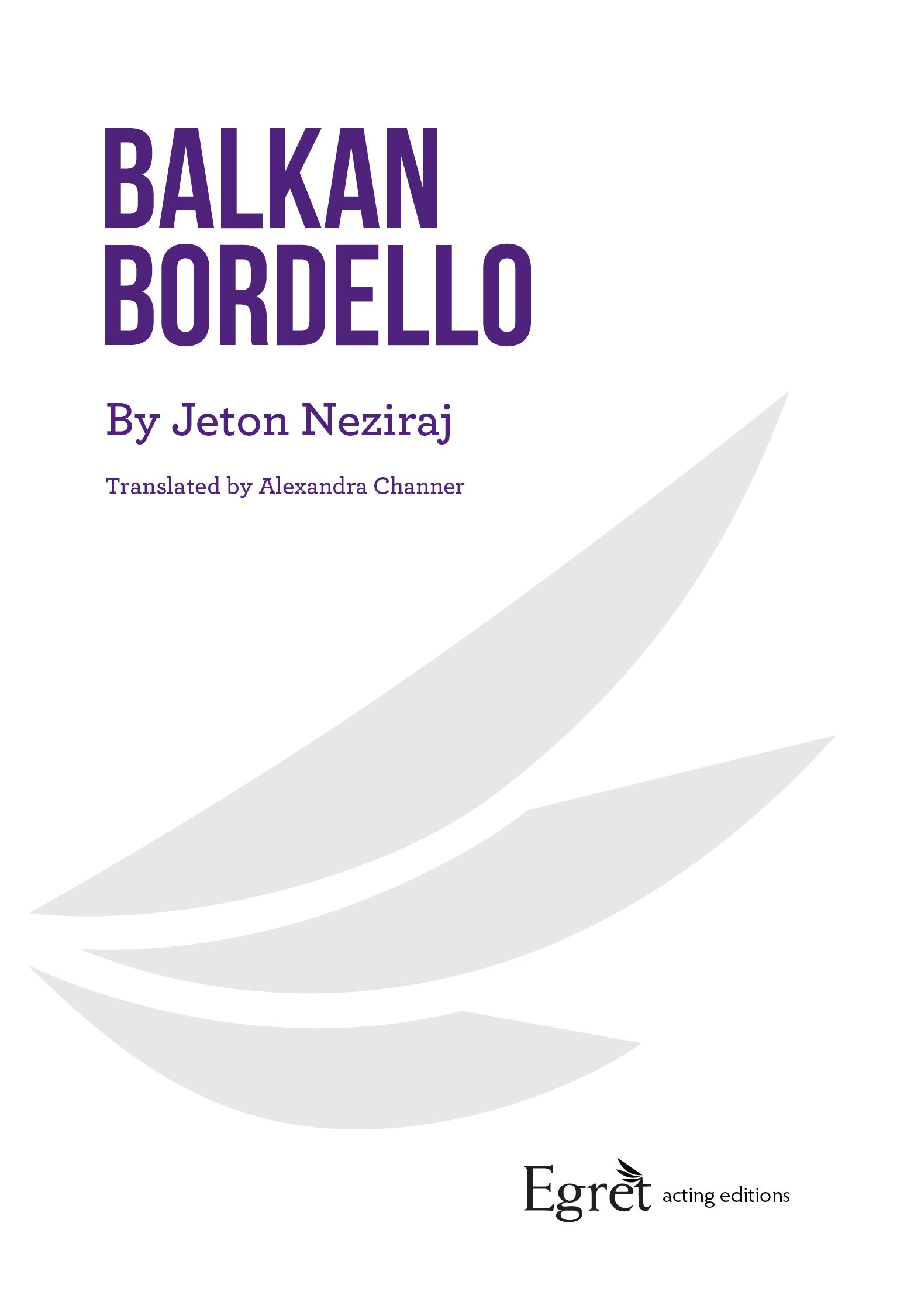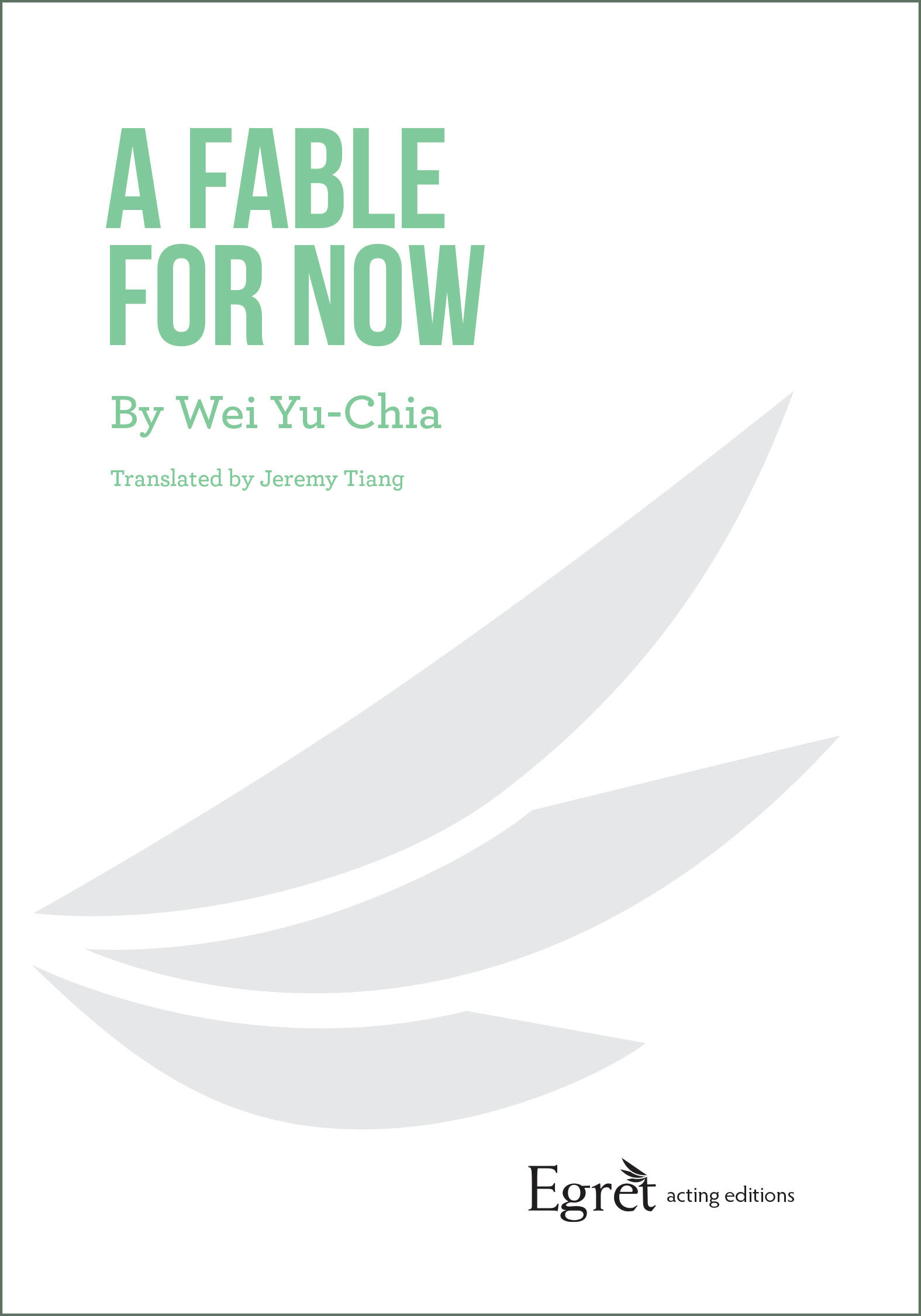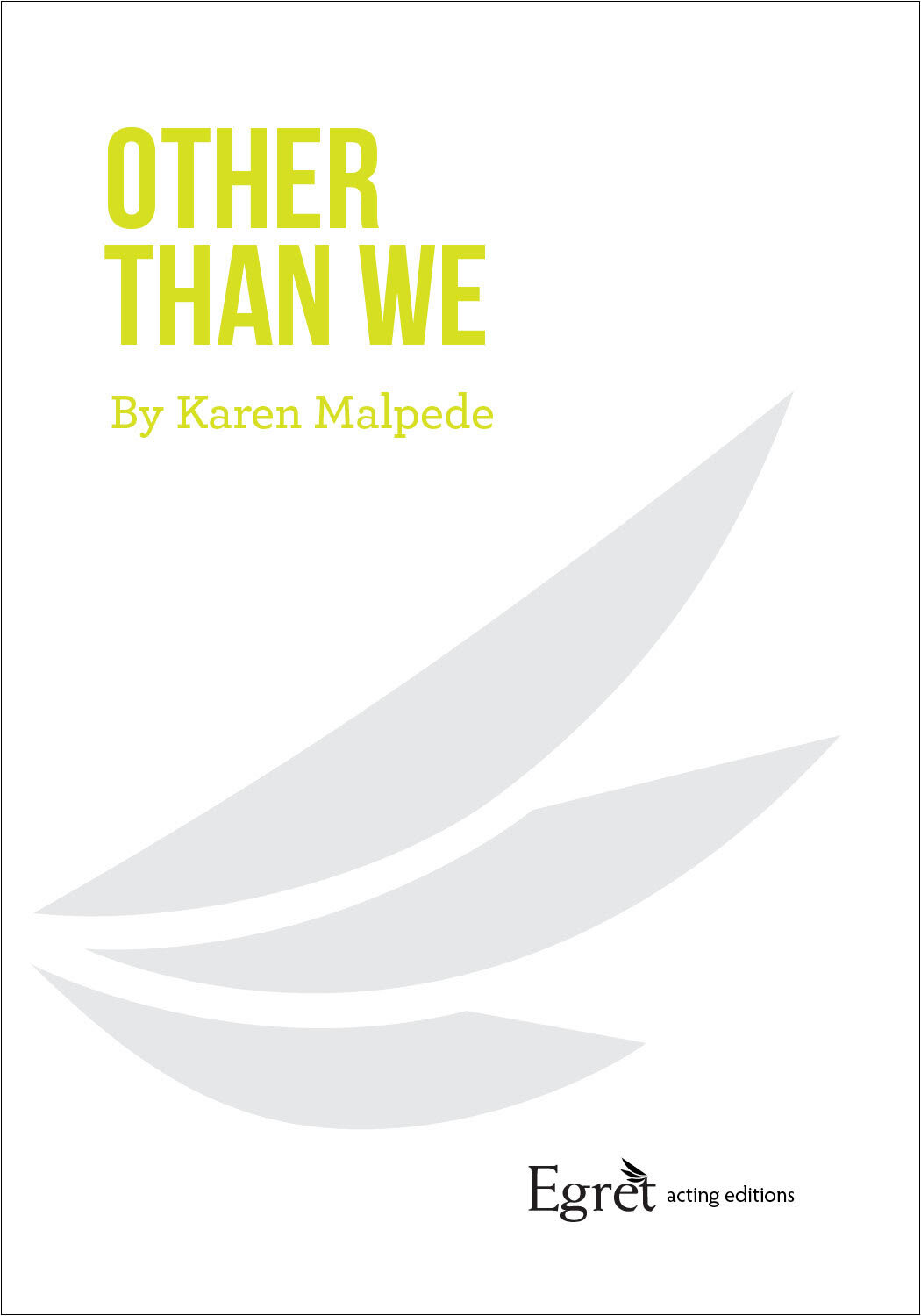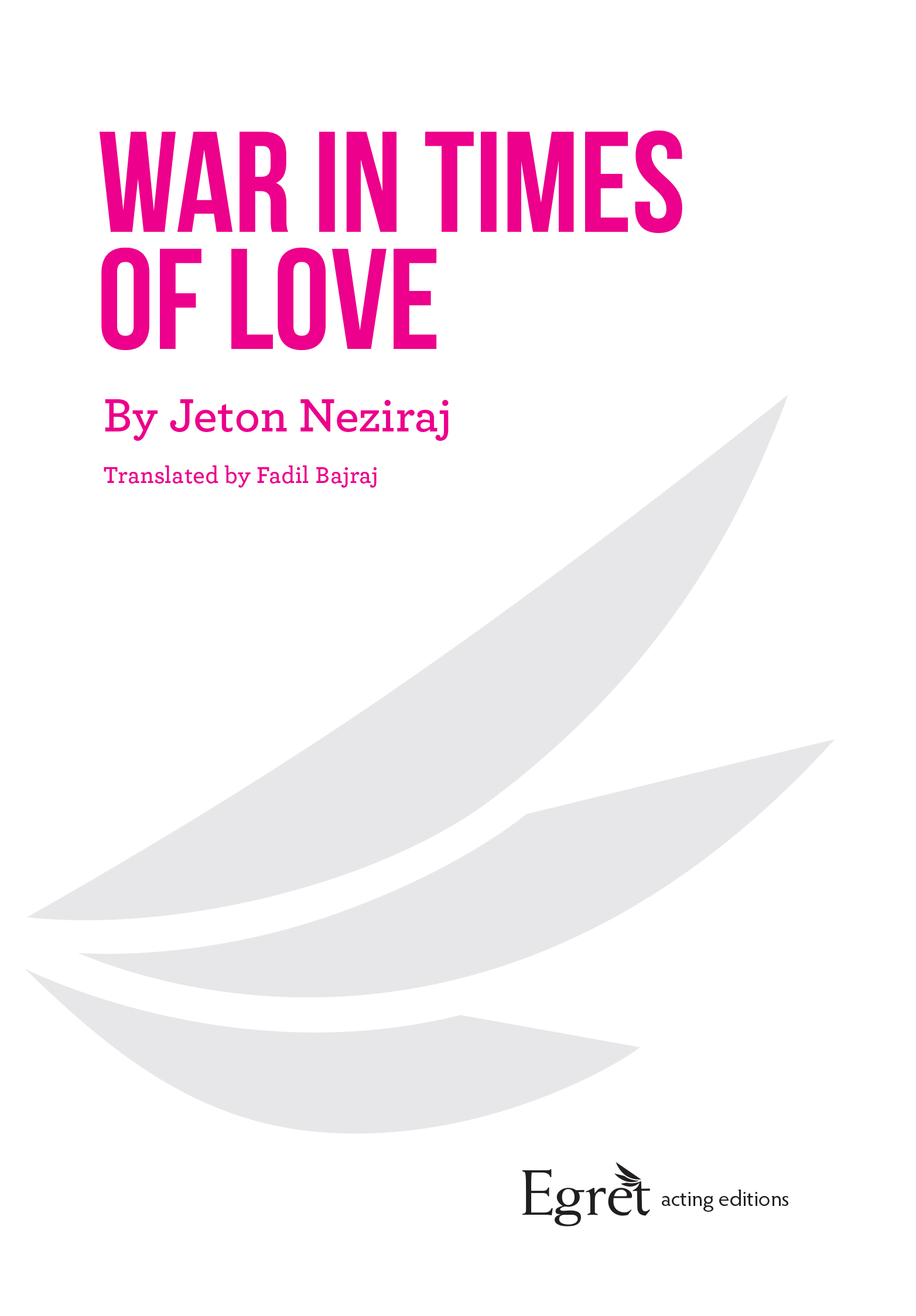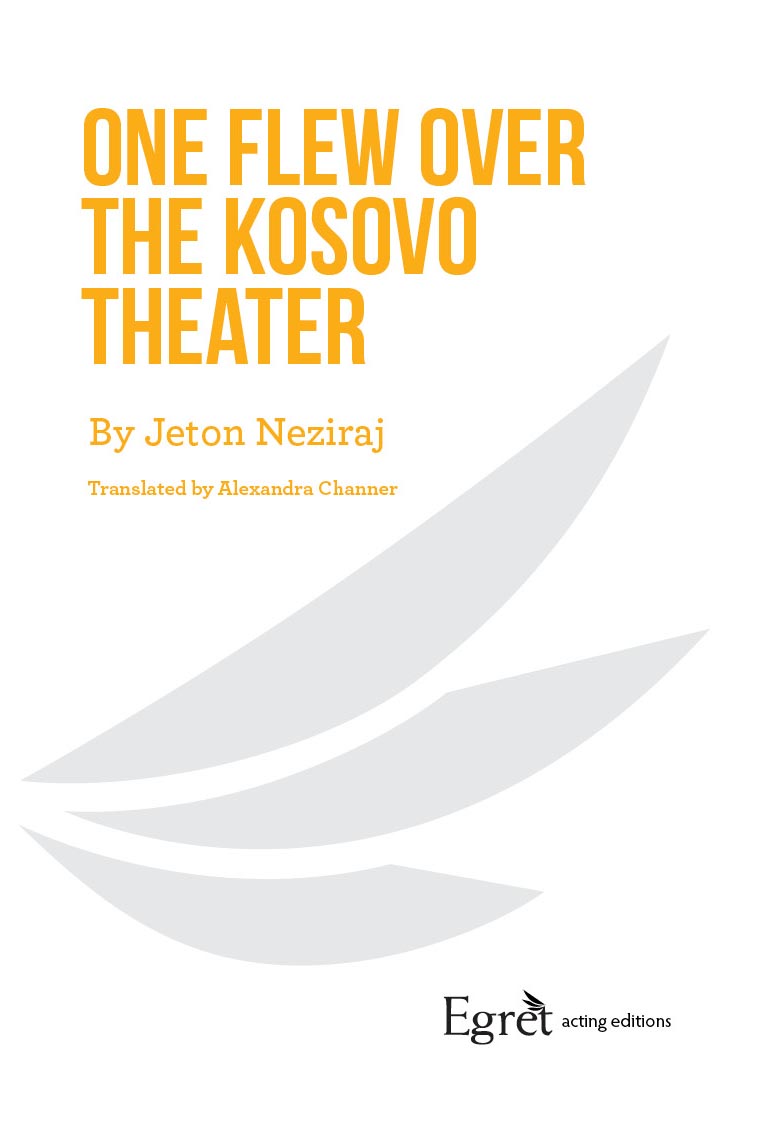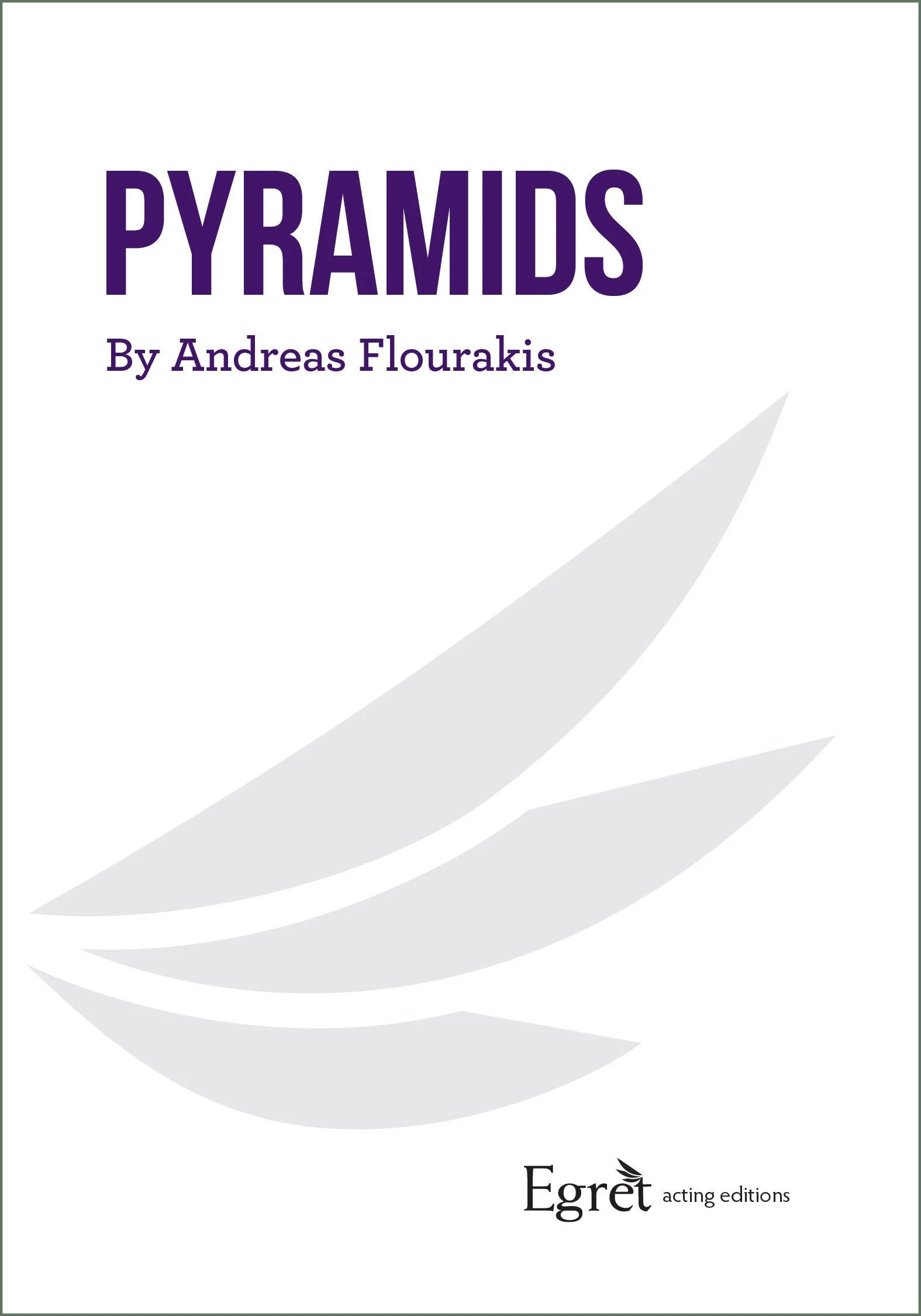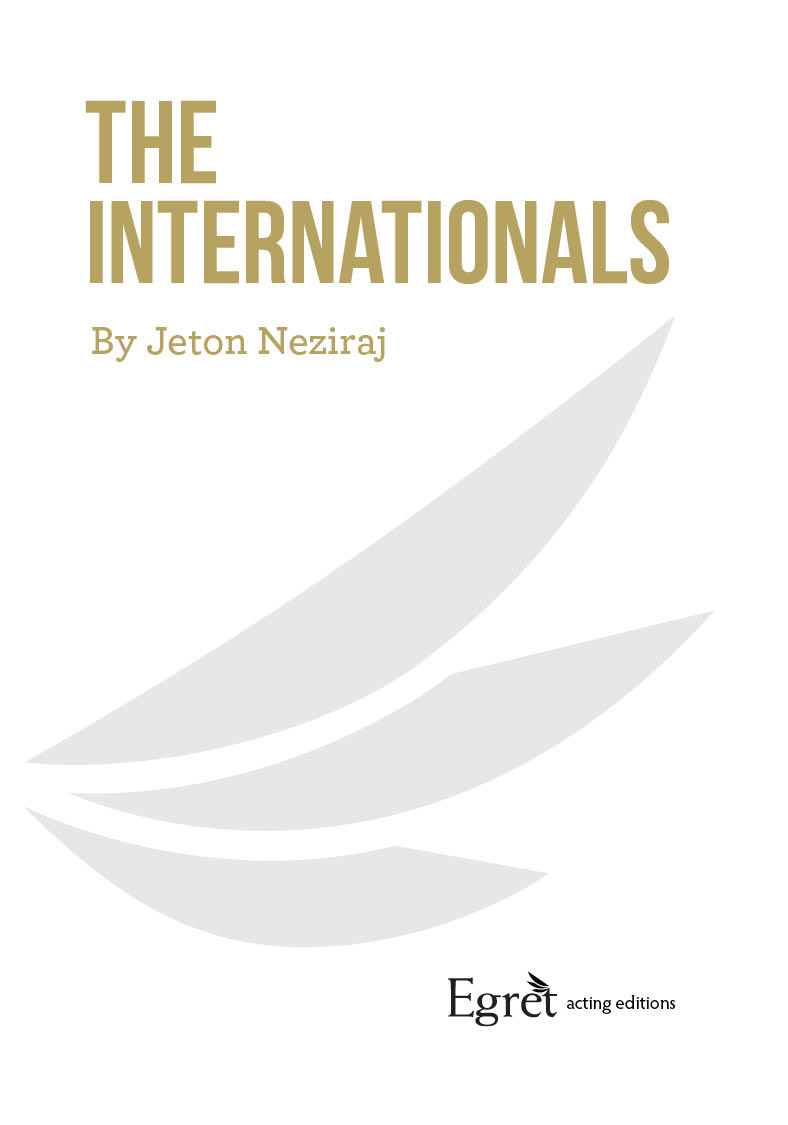Translated by Ellen Elias-Bursać
Through the lens of an apartment in Sarajevo, the war in Bosnia comes into view.
Almir Imsirević's inspirational text depicts the author's almost autobiographical relationship with the phenomenon of the siege. Twenty years ago, we both entered the war as no more than boys, but now we speak about it from a father’s point of view, from the perspective of adults. This is a fragmentary and post-traumatic work. — Dino Mustafić, director, Kad bi ovo bio film . . .
A drama of successive "crashes." The author builds the need for movement in parallel to the feeling of being trapped. — Muhamed Dželilović, From the preface to Seven Dramas from BiH, Silson, Skopje
The story in Almir Imširević's plays is really the one we all experience today. The author puts his finger on the eternal wounds of society. Imširević's drama exposes. — Sava Andjelković, preface to Si c’etait un Spectacle . . ., L'espace D'un Instant
Translated from the Russian by John Freedman
Two plays of revolution — two declarations of defiance — from the vortex of Belarus
It is important and urgent. — Igor Golyak, Artistic director Arlekin Players
Powerful and provocative. — Caitriona McLaughlin, Associate director, Abbey Theatre
The text sings! — Bryan Brown, co-director Maketank
Heartbreaking! — Ann Linde, Foreign Minister of Sweden
The text inspired me / inspired us. — Bogdan Saratean, director, Sibiu, Romania
Andrei Kureichik’s extraordinary response to the situation in the USA Belarus. — Tim Crouch, writer, and performer, U.K.
Translated from the Ukrainian by John Freedman with Vladyslav Hetmanenko
Three premonitory tales from the throes of war
A schrei of despair for the victims of a kind of home invasion on a national scale. — Steven Leigh Morris, American Theatre
Be warned — this play is often grim, disturbing, and deeply depressing. As it must be. — David MacDowell Blue, The World Through Night-Tinted Glasses
Bondarenko’s play is a compelling reminder that war is visited on the innocent, who have little say in how a war starts or when it will end. — Martίn Hernández, Stage Raw
Andriy is a playwright, but also a philosopher and poet — his plays sear the heart with vivid insights. — Noah Birksted-Breen, Artistic Director, Sputnik Theatre, London
A Stage Raw Top Ten play
Translated from the Spanish by William Gregory
In one of Chile’s forsaken reaches — Taltal, grieving parents submit to group therapy.
Irreverent social satire transforms into an intimate space of revelation. —Sebastián Pérez Rouliez, Revista Hiedra
Guilt appears like a fire equal to that of oblivion— extravagant, hungry – which makes everything disappear like death did to those children. —Isabel Baboun Garib, Remonstrator
Taltal is a metaphor for the topic of regionalization and a country that forgets its own history, its own geography. —Arturo Ledezma, elciuadano.com
Cayo’s dramaturgy dares; he stops and thinks. He does not allow himself to be trapped by pseudo-activist pressure. —Fabián Flores, producer
Bosco Cayo’s, The Lady of the Andes, won the 2017 Chilean National Council for Arts and Cultures literary award for best play, and his José Desierto was awarded the 2020 Chilean Ministry of Cultures, Arts, and Heritage playwriting prize.
Translated from the Ukrainian and the Russian by John Freedman, Natalia Bratus, John Farndon, and Evgenia Kovryga
Works in the wake of invasion
These Ukrainian texts are extraordinary. So vivid and so various, heartbreaking, beautiful, funny, and honest. —Carey Perloff, director, and playwright
There is no way we can ignore these moving, theatrical elegies. —Ari Roth, co-producer of Voices Festival Productions in Washington, D.C., Theater Arts
These excerpts prove that above all there is still hope for love in this sea of hate. —Michel Marc Bouchard, playwright, winner of the Prix du Cercle des critiques de l'Outaouais
Very brave and filled with raw emotion. —Michaela Králová, Trinity News, Dublin
These texts are realistic in a new way. —Natalia Korczakowska, artistic director, Studio Teatrgaleria, Warsaw.
Translated from the Albanian by Alexandra Channer
An Oresteia for our times — a reimagining from the Balkans that implicates Everywhere.
Exciting, provocative, and painful. — Danas, Serbia
An orgiastic musical in the aftermath of war. — Borisav Matić, The Theatre Times
The theatrical language is as allegorical as it is lyrical. The soldiers swagger, and the shedding of blood always warrants revenge. —Steven Leigh Morris, American Theatre
An epic story about the age of insanity in which we now live. — Suzana Sudar, Nova, Serbia
The play also spoke to a Western society which is starting to face its murderous colonial past. —Verity Healy, SeeStage
He is a man of explosively creative passion, with the theatrical and personal courage to support it. — Michael Lessac
Translated from the Albanian by Fadil Bajraj
In the thick of the NATO bombing, imperiled by the Serbian police, a Kosovar family withdraws to a subterranean space.
The workings of terror during the Pristina siege. — Hana Pichova, Director of Slavic and European Studies, University of North Carolina
The son who survived the torture of Milosović’s police . . . the father who berates his son because he is frightened. — Zlatko Paković, Mediantrop
There is no normal life in the families of the missing. — Anna Di Lellio, from the introduction to One Flew Over the Kosovo Theater, An Anthology of Contemporary Drama from Kosovo
In a great leap of fellow-feeling, the separate griefs of three diverse characters converge — together with that of a blue roan horse.
A highly theatrical exploration of the necessity and the difficulty of forgiveness. —Marvin Carlson, Sidney E. Cohn Distinguished Professor of Theatre, Comparative Literature, and Middle Eastern Studies, CUNY
Her characters are strong & fascinating, her contexts brilliant & horrifying, and her tone always warm & in the end loving. —Andrew Solomon, past president of PEN American Center
Malpede is an eco-feminist, pacifist, writer, and director who in collaboration with her life partner, the extraordinary performer George Bartenieff, and the late Lee Nagrin, have produced activist poetic theater under the banner of their company, Theater Three Collaborative, for the past 33 years. —Cindy Rosenthal, The Theatre Times
Official Selection of the Segal Center Film Festival on Theatre and Performance, 2022
Translated from the Chinese by Jeremy Tiang
In seven scenes, the world ends again and again, for any number of reasons: environmental collapse, war, unrestrained capitalism.
Mankind hurtles towards a surreal apocalypse . . . The language of the script deliberately highlights the ridiculousness and absurdity in order to accentuate people’s ignorance of environmental ethics. — Jasmine Yu-Hsing Chen, Performing International Plays
Full of language and yet ambiguous in meaning, full of flesh and yet rebelling against the human body. — Li Shi-Yong, Pareviews
The “last man” talks endlessly, like a museum guide, facing an invisible audience. — Guo Qiang-Sheng, ARTalks
Winner of the Taiwanese Literature Prize for 2014.
Translated from the Italian by Haun Saussy
In the confines of a holding area, in the animation of play among the keepers and the kept, the lives of two migrants assume a human weight.
In the game of musical chairs, the one who loses dies, and every death speaks of a different space that we have closed, of different hopes terminated. —Luca Lòtano, Teatro e critica
The ending is a gash that opens onto an abyss.
—Alessandro Toppi, Pickwick Italy
His writing skillfully chooses the shadow areas of language.
—Dario Tomasello, from the afterword to Teatro di Tino Caspanello
The here and now is a diaphragm that constantly allows something that comes from outside to transpire.
—Andrea Pocosgnich, Teatro e critica
Special Mention was given to Bounds at Migration Harbour Europe, London, 2018
In the wake of the climate apocalypse, four rebels enact a daring plan to give birth to something new – to beings other than we.
A thoughtful and metaphorical response to the current climate crisis. — John Soltes, Hollywood Soapbox
A grand vision, born of catastrophe, but with the possibility of triumph. — Eleanor Bader, The Indypendent
It questions the origins of consciousness and thrives on the thrill of creating a better human species. — Lena Zeldovitch, Woman Around Town
A playful but powerful meditation on urgent philosophical questions . . . consciousness, language, evolution, life and death. — Jo Mispel, Motherhood Later
Wild, fun, & unnerving. — Andrew Revkin, science and environmental journalist
A New York Times Critics’ Pick for “Theater This Season,” Fall 2019
Translated from the Albanian by Blendi Kraja
From out of the same limbo, a victim of ethnic cleansing from Kosovo and the hero of an ancient epic reappear in our world.
In Aeneas Wounded, Jeton Neziraj portrays the absurdity of history . . . Whether we speak of Troy or Rome – or whether we speak of Kosovo – history can be like a domino that one day causes a chain of collapse for no apparent reason. — Raisa Stoleriu, theater critic, from a review of the Romanian translation of Aeneas Wounded
His plays have brought threats, vandalism – and international acclaim. — Natasha Tripney, The Guardian
A world-class playwright who challenges our complacency at every twist and turn. — F. Kathleen Foley, Los Angeles Times
Translated from the Albanian by Alexandra Channer
An application for a marriage certificate sets a Balkan town in a spin.
Two men in love, plus one hysterical town . . . Will the couple marry? Is the EU another expression for “ew” in Albanian? — Arber Selmani, Kultplus, Kosovo
An explosion of burlesque, music, and possibly offensive humor, it is simply a riot. — Lura Limani, Prishtina Insight, Kosovo
Neziraj’s plays are inspired by Rock ‘n’ Roll, political cabaret, and the brazenness of William Shakespeare. — Der Spiegel, Germany
Perhaps more than any other playwright, Jeton Neziraj is constantly pushing the boundaries of what is acceptable subject matter in Kosovo. — Jack Davies, Equal Times, England.
An official selection for the Global Queer Plays, Creative/Disruption festival produced by the Arcola Queer Collective in London.
55 Shades of Gay was highly commended in the BBC International Radio Playwriting competition 2018.
Translated from the Albanian by Alexandra Channer
In a vast underground complex, civil servants sift through our dreams. Enter Dan – the new hire for the prized job of interpreter.
His orientation in the tragicomic genre is accomplished in the noblest manner. — Borka Pavićević, the preface to War in Times of Love
He has managed to create, or is on the way to creating, a Neziresque universe. — Ballsor Hoxha, Koha Ditore, Kosovo
According to Kierkegaard, irony helps us to reconcile contradictions on the level of a higher form of madness. It’s exactly that which characterizes the plays of Jeton Neziraj. — Ralph Hammerthaler, Theater der Zeit, Germany
For Jeton Neziraj, not only Kosovo but the entire world is a madhouse. With loving mockery, he looks through the bars at the people inside. —Wolfgang Kralicek, from the introduction to Six Plays by Jeton Neziraj
Translated from the Greek by Eleni Drivas
In a chorus of distinct voices, with every human impulse in play, they conjure up a country.
The attitude of the citizen toward the constant flow of extreme events. — Antigone Katsadima, Agrinioculture, Greece
An expressionistic smattering of ideas . . . an abstract take on mass migration. — Rachel Abrams, The Easy, United States
Its lament for a homeland gone awry, for the security of the past to return . . . is a delicately persuasive one. ― There Ought to Be Clowns, UK
Written in . . . an unconventional, chorus-like structure . . . with no concrete characters, scenes, or dialogues, the writing ingeniously conveys a sense of volatility and bewilderment. —Text for the PRAXIS theatre group production, Oxford, UK
Translated from the Albanian by Fadil Bajraj
An imaginary beauty parlor — within an insane asylum — is the scene of mesmerizing confessions .
The war is now over and the psychiatric hospital has been transformed (at least in the minds of four of its inmates) into a beauty salon. — Gilles Boulan, Le Billet des Auteurs de Théâtre, Paris
Words of love dominate those of war, though traces of the latter can still be detected underneath . . . The skillful intertwining of tragic and grotesque elements . . . hold the historical and psychological aspects together. — David Larre, Au Poulailler, Paris
Conversations about nails and haircuts occur, and . . . “beauties of the night” are “produced,” which are unmasked in the morning. — Borka Pavićevič, from the preface to the French publication of War in Times of Love
He has managed to create, or is on the way to creating, a Neziresque universe. — Ballsor Hoxha, Koha Ditore, Kosovo
Translated from the Albanian by Doruntina Basha and Janice Mathie-Heck
Long after the war in Kosovo, two women – left with a gaping disappearance – observe an anniversary.
The poetry of the language conveys the infinite nuances of the relationship. — ATSH: Albanian News Agency
The first play from a Kosovo playwright ever to appear in Belgrade theaters. — Dardan Zhegrova, Kosovo 2.0
Disappeared sons: monstrous creatures on an imperceptible border between being and nothingness. — Zlatko Paković, from the Introduction to the Serbian version of One Flew over the Kosovo Theater, An Anthology of Contemporary Drama from Kosovo
How deeply incised – the claw marks of unseen crimes.
— Nenad Obradović, e- novine.com
Winner of the Golden Laurel for Best Balkan Contemporary Play at the MESS International Theater Festival, Sarajevo 2013
Translated from the Albanian by Alexandra Channer
Following a sudden order by the Ministry of Sport, the National Theater of Kosovo is tasked with preparing a “national” play for the celebration of their long-awaited independence.
The nation as a cuckoo’s nest? Its theatre as an asylum? . . . A farce that magnifies the relation between art and politics.
— Thomas Hahn, Theater heute, Germany
The play dances along to broken, out-of-tune music, symbolizing the artificial quality of art that is conquered and oppressed by “higher” interests. — Nemanja Cabrić, BIRN, Belgrade
Dialectical and para-national . . . the play demystifies the effects of politics on art. — Ana Tasić, Politika, Serbia
A healthy and cheerful POLITICAL COMEDY . . . Neziraj laughs out loud in the face of bribery, brutality, dullness, lack of knowledge, ignorance . . .
— Goran Cvetković, Radio Belgrade 2
Translated from the Greek by Alexi Kaye Campbell
If you had to leave home in a hurry – in the face of a cataclysm – what would you take with you?
This is theatre that makes you feel that you’ve got your feet wet, whether clambering up the beach or reaching out a hand from the rocks. — Howard Loxton, British Theatre Guide
His goal is to show us around the chaotic, hostile, unwelcoming, wounded, helpless “land of men.” Flourakis engages himself . . . with the savage and sacred material of human nature.
— Eleni Koutsileou, Avgi, Greece
A verbal mosaic of ideas, desires, judgements, doubts and rationales . . . The text indisputably showcases one and only one protagonist: the crowd. — Eleni Triantafylopoulou, from the introduction to I Want a Country
Commissioned by the Royal Court Theatre. Inspired by the refugee crisis.
Translated from the Albanian by Ani Gjika
Through the course of a night, and across illimitable space, a man from Kosovo is plagued by a mosquito.
A traumatized ghost . . . a soul betrayed . . . a man under the spell of madness . . . The actor thrills to the roots of the hair . . .
— Eliona Lata, Gazeta Shekulli, Kosovo
Political poetry in the broadest sense . . . observed from various angles, but always with a lucid bite. Very.
— Héctor Carreto, Periódio de Poesía, Mexico City
Winner of the Katarina Josipi Award for best original drama of 2010, presented by the National Theater of Kosovo.
Winner of the first prize at the Festival of Monodrama, Vlorë, Albania in 2013.
Translated from the Albanian by Robert Elsie,
Janice Mathie-Heck, and Alexandra Channer
The Demolition of the Eiffel Tower is not only a symbolic title but a cry of alarm. It is a text of great strength – devastating in its impact.
— Andrea Porcheddu, gli statigenerali, Italy
The Eiffel Tower is collapsing before our eyes. It is being demolished by the red, blue, green, and black sultans who are appearing everywhere.
— Albatros Rexhaj, Gazetta Tribuna, Prishtina
A perfect dramaturgical machine that spares no one in the act of dismantling, piece by piece, not only stereotypes, misunderstandings, and prejudices with respect to Islam, but the myth of a tolerant Europe as well.
— Anna Maria Monteverdi, Hystrio, Italy
His writing attempts to build bridges in a world traumatized by conflict and to bring nuanced communication to a world under the deadly grip of Manichaeism. — American Theatre, United States
FORTHCOMING
Translated from the Greek by Margaret Wesseling
Translated from the Albanian by Alexandra Channer
Translated from the Montenegrin by Paula Gordon
Translated from the Italian by Haun Saussy
Translated from the Albanian by Alexandra Channer
Translated from the Turkish by Özlem Karadağ
Translated from the Turkish by Özlem Karadağ
Translated from the Greek by Eleni Drivas
Translated from the Albanian by Alexandra Channer
Translated from the Albanian by Alexandra Channer
Translated from the Albanian by Ajkuna Hoppe
Translated from the Spanish by William Gregory
Translated from the Greek by Emmanuela Lia
Translated from the Albanian by Alexandra Channer
Translated from the Turkish by Nicholas Glastonbury
Translated from the Turkish by Kate Ferguson
Translated from the Kurdish by Nicholas Glastonbury
Translated from the Albanian by Alexandra Channer
Translated from the Albanian by Alexandra Channer
Translated from the Albanian by Elizabeth Gowing
Translated from the Danish by Michael Evans
Translated from the Slovenian by Barbara Skubic
Translated from the Bosnian by Ellen Elias-Bursać













